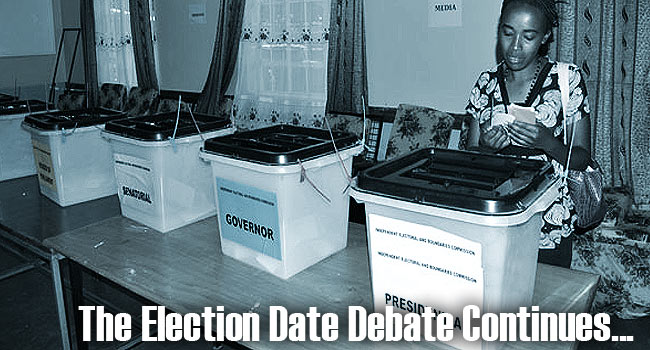The Election Date Debate Continues...

Kenyans are yet to know when exactly the country will hold its next elections. Regardless, several events have occurred that are bringing us closer to knowing the all-important date. The following is an explanation of what has been happening and where we stand on this issue.
The High Court Ruling
Following the heated debate on when elections should be held, the High Court made a ruling based on the authority given to them by the Constitution in Article 165 (3) (d), that says that, they have jurisdiction to hear any question respecting the interpretation of the Constitution including the determination of:
- The question of whether any law is inconsistent with or is forbidden by the Constitution.
- The question whether anything said to be done under the authority of this Constitution or any law is inconsistent with or is forbidden by this Constitution.
- Any matter relating to constitutional powers of any State organs in respect of county governments and any matter relating to the constitutional relationship between the levels of government.
The court ruled that elections be held in March 2013, unless President Mwai Kibaki and Prime Minister Raila Odinga disband the coalition government by the end of October 2012. They were categorical that the dissolution of the coalition government established by the National Accord was a key determinant. The accord states that the coalition government stands dissolved when either of the coalition parties agree in writing or one coalition partner withdraws from the mediated arrangement. If the elections were to be held this year, it will have to be within 60 days after the coalition government has been disbanded. This is according to section 6 of the National Accord and Reconciliation Act. However, if they do not do so then the election date will be subject to the end of the term of the current Parliament which is January 14th 2013, and election shall be held within 60 days after their term ends. This just means that the court ruling was only an interpretation of the law and the final decision on the election date lies in the hands of the two principals. The two principals are under pressure because they are being asked by some parties to dissolve Parliament in October for the elections to be held in December while other parties support the court ruling and want the elections to be held in March 2013.
Presidential Term
Following the High Court ruling, there is a question on whether there will be a political vacuum in case the election is to be held in March 2013, considering the fact that President Mwai Kibaki's term ends on December 31. According to Article 142(1), the President shall hold office for a term beginning on the date on which the President was sworn in, and ending when the person next elected President is sworn in. This in turn means that the President will remain in office until when the newly elected President is sworn in. If on the other hand President Mwai Kibaki resigns from office before the election date, according to article 146 (2)
- The Deputy President shall assume office as President for the remainder of the term of the President or,
- If the office of the Deputy President is vacant, or he is unable to assume the position, the Speaker of the National Assembly shall act as President and an election to the office of the President shall be held within 60 days after the vacancy arose in the office of the President.
This therefore means there is no possibility of a power vacuum occurring.
Cabinet Bill in Parliament
To add to the election date debate, the Cabinet recently presented a bill in parliament that was seeking to change elections date from the 2nd Tuesday of August to the 3rd Monday of December after every five years. It is still valid and in the event that it is passed, it will not affect the Court ruling made on the elections date that was in accordance with the 6th Schedule of the Constitution of Kenya. This means that the elections will still be held in March 2013 in case the coalition government is not dissolved. However if the bill is passed, it will mean that every other election following the next elections will be held in the month of December after every 5 years. However, if the bill fails to pass, then the month of August will be the official month of elections. It should also be clear that fact that the (2012) elections might be held in March 2013 does not mean that March will now be the official election month. The March 2013 date is a decision was based on when the term of the current Parliament will end.


